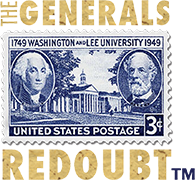Cover Letter for Can a Donor Revolt Save American Universities
To Our Readers: In my search for reliable reporting on higher education, I have largely abandoned the main street press and current broadcasting outlets. More than a year ago I subscribed to The Free Press, published on Substack and founded by a New York Times newsroomrefugee, Bari Weiss. As a subscriber I have the right to share stories with others, and I am pleased to do so today. This week it published an article by Jacob Savage entitled Can a Donor Revolt Save American Universities? It is a salient question.
The article, which is found in full below, describes in some detail a number of major donor actions that have occurred in light of the failure of students, faculty and top administrators to constructively address the current mayhem in the Middle East. One can assume that the movement for restricting alumni and perhaps foundation funding for higher education may be much closer to a tipping point than ever. While keeping this theme firmly in mind, I wish to point out two other items that caught my attention. First, in the introduction to the article, The Free Press founder makes a concise and poignant statement about why higher education is caught in the current dysfunctional straits. Bari Weiss writes: “Since the beginning of The Free Press, we have paid particular attention to the story of how America’s great institutions of higher learning, charged with educating the nation’s future leaders, have been taken hostage by an illiberal ideology that has replaced the pursuit of truth with moral confusion and knee—jerk social activism.” A second catch is that later in the article itself, author Jacob Savage writes: “And yet it is only now – after all the histrionic and outraged statements about #MeToo and BLM and Ukraine and Roe v. Wade – that universities are discovering the virtue of institutional neutrality.” In a few following paragraphs, I provide some perspective on two historical developments at the University of Chicago which offer offer a framework for achieving that state of neutrality Mr. Savage promotes, a condition which when achieved could have profound impact on the training of our nation’s future leaders and community builders and also provide a sustainable future for higher education.
The University of Chicago is well known for its publication of the Chicago Principles on Freedom of Expression. In 2014, President Robert J. Zimmer and Provost Eric Isaacs appointed a committee of university faculty to articulate “the University’s overarching commitment to free, robust, and uninhibited debate.” The resulting “Chicago Principles” have since been adopted by a number of leading colleges and universities across the nation. The Foundation for Individual Rights and Free Expression (F.I.R.E.) reports that Washington and Lee University was the 10th institution to endorse them. Initial research indicates that only a faculty committee adopted them, and the Board of Trustees has yet to do so. We hope the latter will happen in the near future. We welcome documented contrary findings at [email protected]
Our neighbor to the south, the University of North Carolina, has been very active in this space recently. In 2018 the UNC Faculty Assembly adopted the Chicago Principles on Freedom of Expression, an action confirmed by the UNC Trustees in March 2021. The faculty resolution read, in part, “By reaffirming a commitment to full and open inquiry, robust debate, and civil discourse we also affirm the intellectual rigor and open-mindedness that our community may bring to any forum where difficult, challenging and even disturbing ideas are presented.” During the summer of 2022, UNC adopted what is known as The Kalven Committee Report on the University’s Role in Political and Social Action. I believe it is still the only university to do so in the past two years. Below is some information gleaned from a Forbes article by Michael Poliakoff, President of the American Council of Trustees and Alumni about the “Kalven Report” and UNC’s important step.
Almost 50 years prior to publication of the Chicago Principles, America’s campuses were roiled by demonstrations against the Vietnam War. Then University of Chicago President George W. Beadle appointed a faculty committee headed by Harry Kalven, Jr., a law professor, to prepare “a statement in the University’s role in political and social action.” The resulting “Kalven Report” established the university’s official position to this day of institutional neutrality on these issues. Three quotes nicely sum up Kalven’s key principles. First, “The university is the home and sponsor of critics; it is not itself the critic.” Second, “To perform its mission in the society, a university must sustain an extraordinary freedom of inquiry and maintain an independence from political fashions, passions, and pressures. A university, if it is to be true to its faith in intellectual inquiry, must embrace, be hospitable to, and encourage the widest diversity of views within its own community.” And third, “It cannot insist that all of its members favor a given view of social policy; if it takes collective action, therefore, it does so as the price of censuring any minority who do not agree with the view adopted.” There is plenty to think about in these statements. And there are major undertakings to implement the Kalven Report. However, it is a goal worth pursuing by Washington and Lee University, after the Trustees adopt and implement “The Chicago Principles” and to be pursued by institutions of higher learning throughout our land. Please click on the link for https://www.thefp.com/p/can-the-donor-revolt-save-american-universities for Jacob Savage’s story.
As always, we look forward to hearing your thoughts and questions, which can be sent to [email protected]
Thomas P. Rideout, Chair
Tom Rideout
The Generals Redoubt
